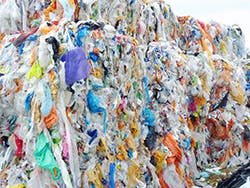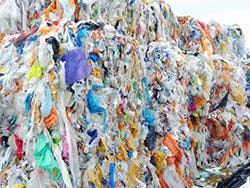Neste Explores Using Waste Plastic As Raw Material For Fuels
In Europe, some 27 million tons of post-consumer plastic waste is generated annually.
Neste, producer of renewable diesel, is exploring ways to introduce liquefied waste plastic as a future raw material for fossil refining. The aim of the development project is to proceed to industrial scale trial during 2019. The company’s target is to process annually more than one million tons of waste plastic by 2030. Using waste plastic as a raw material increases material efficiency, reduces crude oil dependency and carbon footprint of products based on such raw material, according to the company.In Europe, some 27 million tons of post-consumer plastic waste is generated annually, according to Neste. Only about one-third of this amount is currently collected for recycling. In January 2018, the European Union released its Strategy for Plastics in a Circular Economy. One of its objectives is to increase recycling of plastics and reuse of plastic packaging by 2030. In the EU Waste package, recycling target for plastic packaging was raised to 50% by 2025 and 55% by 2030.
“In order to reach the ambitious EU plastics recycling targets, both chemical and mechanical recycling need to be recognized in the EU regulation,” says Matti Lehmus, executive vice president of Neste’s Oil Products business area.
Chemical recycling means using waste plastics as raw material for the refining and petrochemical industries to convert them into end products such as fuels, chemicals and new plastics. Chemical recycling can create new outlets for plastic waste by enabling high end product qualities, thereby complementing traditional mechanical recycling.
Reaching industrial-scale production of products from plastic waste still requires development of technologies and value chains. To accelerate development, Neste is looking for partners across the value chain, for example in waste management and upgrading technologies.
In addition to exploring ways to utilize plastic waste as raw material, Neste is helping the plastics industry and various plastics-consuming companies to reduce their crude oil dependency and climate emissions by producing durable and recyclable renewable plastics from bio-based raw materials, such as waste fats and oils. As an example, Neste and IKEA will produce polypropylene (PP) plastic from fossil-free, bio-based raw materials at commercial scale during fall 2018.
For more information, visit: www.neste.com

